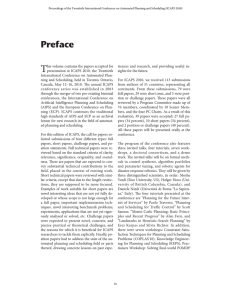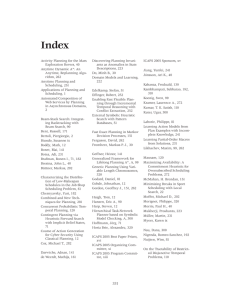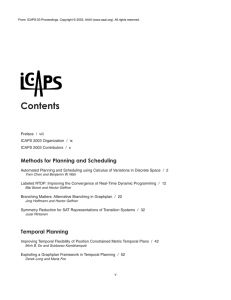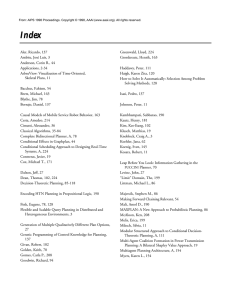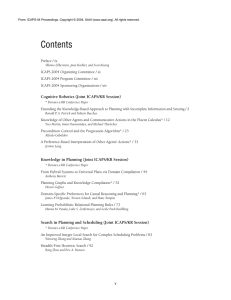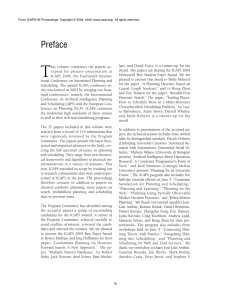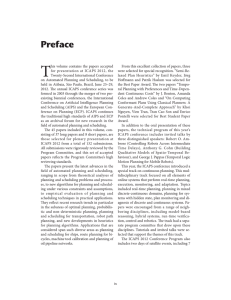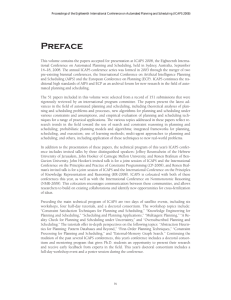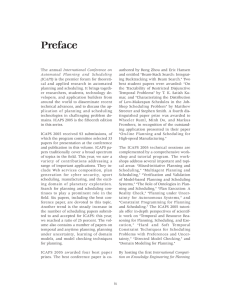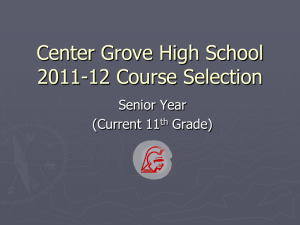T Preface and Acknowledgements
advertisement
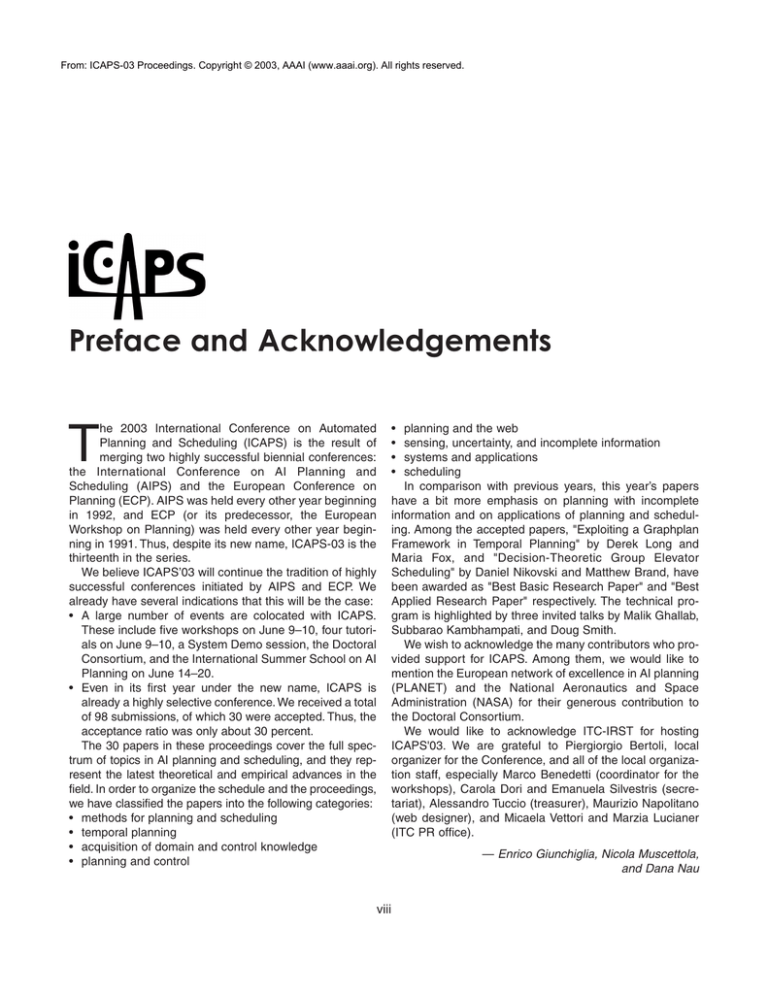
From: ICAPS-03 Proceedings. Copyright © 2003, AAAI (www.aaai.org). All rights reserved. Preface and Acknowledgements • • • • planning and the web sensing, uncertainty, and incomplete information systems and applications scheduling In comparison with previous years, this year’s papers have a bit more emphasis on planning with incomplete information and on applications of planning and scheduling. Among the accepted papers, "Exploiting a Graphplan Framework in Temporal Planning" by Derek Long and Maria Fox, and "Decision-Theoretic Group Elevator Scheduling" by Daniel Nikovski and Matthew Brand, have been awarded as "Best Basic Research Paper" and "Best Applied Research Paper" respectively. The technical program is highlighted by three invited talks by Malik Ghallab, Subbarao Kambhampati, and Doug Smith. We wish to acknowledge the many contributors who provided support for ICAPS. Among them, we would like to mention the European network of excellence in AI planning (PLANET) and the National Aeronautics and Space Administration (NASA) for their generous contribution to the Doctoral Consortium. We would like to acknowledge ITC-IRST for hosting ICAPS'03. We are grateful to Piergiorgio Bertoli, local organizer for the Conference, and all of the local organization staff, especially Marco Benedetti (coordinator for the workshops), Carola Dori and Emanuela Silvestris (secretariat), Alessandro Tuccio (treasurer), Maurizio Napolitano (web designer), and Micaela Vettori and Marzia Lucianer (ITC PR office). he 2003 International Conference on Automated Planning and Scheduling (ICAPS) is the result of merging two highly successful biennial conferences: the International Conference on AI Planning and Scheduling (AIPS) and the European Conference on Planning (ECP). AIPS was held every other year beginning in 1992, and ECP (or its predecessor, the European Workshop on Planning) was held every other year beginning in 1991. Thus, despite its new name, ICAPS-03 is the thirteenth in the series. We believe ICAPS’03 will continue the tradition of highly successful conferences initiated by AIPS and ECP. We already have several indications that this will be the case: • A large number of events are colocated with ICAPS. These include five workshops on June 9–10, four tutorials on June 9–10, a System Demo session, the Doctoral Consortium, and the International Summer School on AI Planning on June 14–20. • Even in its first year under the new name, ICAPS is already a highly selective conference. We received a total of 98 submissions, of which 30 were accepted. Thus, the acceptance ratio was only about 30 percent. The 30 papers in these proceedings cover the full spectrum of topics in AI planning and scheduling, and they represent the latest theoretical and empirical advances in the field. In order to organize the schedule and the proceedings, we have classified the papers into the following categories: • methods for planning and scheduling • temporal planning • acquisition of domain and control knowledge • planning and control T — Enrico Giunchiglia, Nicola Muscettola, and Dana Nau viii
